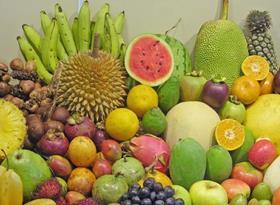
The Indonesian Ministry of Agriculture plans to introduce new national standards on imported horticultural products by 2012 in a bid to reduce the imports of ‘low quality produce’, The Jakarta Globe reported this morning.
“Hopefully it can reduce the import volume of the fruits entering the country, since only the high-quality fruits will be able to be sold in the domestic market,” said Dr Ahmad Dimyati, the ministry’s director general of horticulture.
Under the scheme imported fruit will be tested for ripeness, colour, sugar and acid content.
The new standards will help local farmers by limiting the influx of oranges, durians and pineapples, which have flooded the Indonesian market in recent years.
But Mahatmantri Griwulangi, head of international trade at Rabobank International Indonesia, said many of the imports were actually of a higher standard than local produce.
“The quality of imported fruit is already high. Setting a higher standard will raise questions from the World Trade Organisation,” he said.
The government’s announcement of the plans is the latest attempt to push such legislation through, according to industry sources.
“They have been trying to do that for years, and someone must have brought it up again,” Hendry Sim of Jakarta-based importer Laris Manis Utama told Fruitnet.com.
“They were trying to do it a few years ago, but we argued about how they were going to do it. How are they going to standardise it? How are they going to tell you what is good enough?”
Mr Sim said any new attempts to implement such standards would undoubtedly draw protests from importers.
Dr Dimyati said tariffs on most fruits had been removed by 2006, leading to a large increase in imports, with durians from Thailand and oranges from China and Australia leading the charge.
In 2006 Indonesia imported 100,655 tonnes of oranges valued at US$71.8m and by 2008 that figure had jumped to 143,000 tonnes worth US$124m.
The country imported 16,000 tonnes of durians in 2006, valued at US$15.4m. Two years later that had grown to 24,600 tonnes at US$30.8m.
On the other side of the fence, Indonesia’s National Horticultural Council head Benny Kusbini said the government had been too slow to act.
“The government should have imposed the standards two years ago. At present, the imported fruits have already overwhelmed our fruit markets,” he said.



